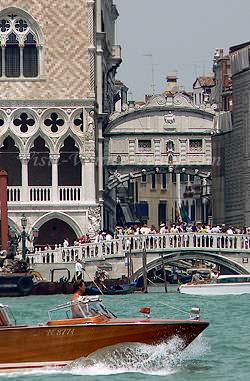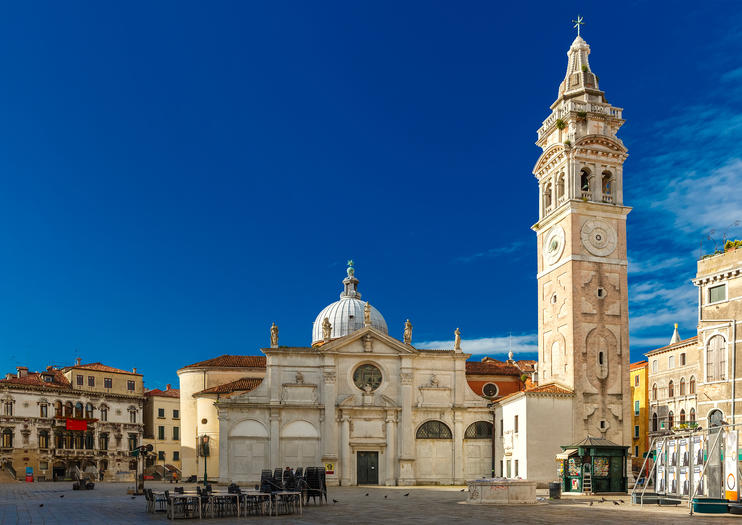Once again, all the pictures loaded not in the order which I had intended. They came up 3rd-4th-2nd-1st. Obviously I will have to come up with a new strategy.
Ruskin wrote that "the Raphael who seemed sent and inspired from heaven that he might paint Apostles and Prophets, sank at once into powerlessness at the feet of Apollo and the Muses", though he adds in a footnote that "yet the Parnassus is the greatest of the Vatican Raphael frescoes". What do I have to say about this? I suppose I was thinking, "Oh yes, I have seen those". I most remember "The School of Athens", of course, all of those philosophers, the muscular Aristotle, Archimedes drawing a circle with a compass in the dirt, the haughty Dante, and so on. I found the rooms pleasant enough and the atmosphere lofty enough in spite of the crowds. Serious people always consider the crowds to debase such sites beyond all salvation. This is mostly I think an accurate observation considering our usual relationship to masterpieces and grandeur in general. We think of them--or rather perhaps ourselves--as not so great as to be able to withstand so much sharing, and of such a rather rough kind, with all its noblest qualities intact.
On the unhappy trend of using the greatest gifts of imagination upon fictitious subjects: "The images summoned by art began gradually to assume one average value in the spectator's mind; and incidents from the Iliad and from the Exodus to come within the same degrees of credibility." The Iliad is here supposed to represent the fiction.
I very often write things on this blog of which I realize a couple of days--frequently a couple of hours--afterwards I have missed entire important aspects. I do not necessarily believe what I have written to be wrong; I have simply failed to see enough of the whole. Even the greatest of geniuses comprehend and reveal at any given time only a sliver of the whole and real truth of any matter. The greatness is in the wholeness, richness and importance of the particular sliver under consideration. Weak thought, weak writing, weak understanding is above all a problem of narrowness of view, an inability to grasp enough sides, enough facets of an issue. This deficiency of course cripples the critic no less than it does the creative artist. Ruskin does not deal sensibly, nor, I think, honestly enough with the real reasons for the decline of genuine religious feeling among artists and intellectuals in the West. He writes as if intelligent people ceased believing due purely to perverse wilfulness, a desire to be lesser and more wicked men than their fathers. Surely this is an oversimplistic view of the dynamics of the case. The life of traditional faith had ceased to serve many people's deeper intellectual as well as emotional needs. If it had not truly done so, there is little reason to believe the cultural leaders of the day would have dealt with it in such an artificial, coldly felt manner in the kinds of artworks which Ruskin talks about that date from the decline period.
 In a later note on the statement that 19th-century Western Europe is as Pagan as it was in the 2nd century: "I wish it were! But the worship of Bacteria and Holothuriae had not been instituted when this was written". (Holothuriae are echinoderms [water polyps?-Greek translation] having an elongate flexible tough muscular body). This is not really on the subject, but I have often thought that while modern medical facilities are truly remarkable--indeed awesome--testaments to human learning and achievement, and are indeed in many communities by far the largest, richest and most important institution for miles around, akin in some instances almost to the medieval church, I have my doubts as to how positive of a trend this is as it absorbs ever more and more of the populace into its ethos, either as workers, patients or citizens.
In a later note on the statement that 19th-century Western Europe is as Pagan as it was in the 2nd century: "I wish it were! But the worship of Bacteria and Holothuriae had not been instituted when this was written". (Holothuriae are echinoderms [water polyps?-Greek translation] having an elongate flexible tough muscular body). This is not really on the subject, but I have often thought that while modern medical facilities are truly remarkable--indeed awesome--testaments to human learning and achievement, and are indeed in many communities by far the largest, richest and most important institution for miles around, akin in some instances almost to the medieval church, I have my doubts as to how positive of a trend this is as it absorbs ever more and more of the populace into its ethos, either as workers, patients or citizens."...at last, in the very institutions of which the administration may be considered as the principal test of the genuineness of natural religion--those devoted to education--the Pagan system is completely triumphant; and the entire body of the so-called Christian world has established a system of instruction for its youth, wherein neither the history of Christ's Church, nor the language of God's law, is considered a study of the smallest importance; wherein, of all subjects of human inquiry, his own (my emphasis) religion is the one in which a youth's ignorance is most easily forgiven..." This idea of religion as a birthright, and the most vital one a man possesses, is important, because it is a force that is certainly very much alive today, and is still powerful. Orthodox Jews are an obvious example of this in our country, not to mention Mormons, who should probably be taken more seriously as a force in the world, because they are one, seemingly entirely on the strength of their oft-ridiculed creed. Others of us however have little or no meaningful sense of such an inheritance.
A prophecy: "I believe that in a few years more we shall wake from all these errors in astonishment, as from evil dreams; having been preserved, in the midst of their madness, by those hidden roots of active and earnest Christianity which God's grace has bound in the English nation with iron and brass." This is accompanied by a footnote, which reads "Carlyle allows two hundred (years) or so; I hope, too liberally." 200 years from the publication of the book would be 2051. It certainly does not look like things are headed in that direction, especially in England's green and pleasant land, though maybe things are at, or at least very near, the nadir now, and people will begin to reclaim their birthright (though if Anglicanism is a genuine and particular birthright [as opposed to Romanism], how and at what point did it attain to this status).
Picture--Postgraduate American Girls on the Grand Tour. Ahhh. Sorry, I can't help myself. These chicks (I think they're from Texas) obviously aren't really my type, and I am certainly not theirs, which is unfortunate, because in the prime pickups spots of Europe they outnumber the kinds of girls I like by about 2.3 to 1, and those I might ever have had a chance at getting by around 734 to 1.
Ed--New picture 7/8/2019
All right, I got through that. Now we are in the chapter titled "Mene", which I believe is a Latin word, the meaning and significance of which eludes me at the moment. There is a long description of the "Feast of the Maries" which was carried on for four centuries up to 1379 and was the exclusive marriage day for the noblest families of the city during that time, that is very beautiful and evocative. The event was by all accounts marked by extraordinary splendor. The occasion for the feast was a vision of the Virgin by the 7th century Bishop of Uderzo, in which the mother of the Lord commanded him to found a church in the spot he should see a white cloud rest, which was done, and the church was known as St-Mary-the-Beautiful, in the square of which was carried out the main pomp of the feast (see picture below, though the church dates from after the time of the festival). Ruskin assures us that "the spot is still worth (the traveller's) pilgrimage, for he may receive a lesson upon it, though a painful one." As I have noted before, I am mad about the idea of pilgrimages.
On the grotesque heads from the later, decadent Renaissance period which adorn many of the city's bridges: "...they are evidences of a delight in the contemplation of bestial vice, and the expression of low sarcasm, which is, I believe, the most hopeless state into which the human mind can fall." I can vouch that it is a pretty disgraceful state to descend to, but there are at least gradations in the extent to which one is lost.
Now we are in the Castel-Franco chapter (picture next time). It opens with a very nice slam of English tourists in Venice, especially such as had read his book: "...I find on re-reading it, so clearly, that it greatly amazes me at this date to reflect how no one has ever believed a word I said, though the public have from the first done me the honor to praise my manner of saying it; and, as far as they found the things I spoke of amusing to themselves, they have deigned for a couple of days or so to look at them, helped always through the tedium of the business by due quantity of ices at Florian's, music by moonlight on the Grand Canal, paper-lamps, and the English papers and magazines at M. Ongaria's, etc..." I suppose I am glad that I have discovered at a relatively early age that no matter how hard you try, if you lack the quality either of deep seriousness or luminescent brilliance somewhere inherent in your mind from an early age, you are never going to be accepted by or do anything right in the eyes of smart people.
Picture--Piazza de Santa Maria Formosa. Ruskin thought this square, which looks pretty gorgeous to me, a place to learn an unpleasant lesson about the degradation of a people and a culture.
Ruskin describes Venice at the end of the above rant as "the umquhile Queen of the Sea." Umquhile is such an outdated word that it does not even appear in the Webster's Seventh New Collegiate Dictionary of 1965, which is the most useful and intelligent dictionary for a person seeking a quick, clear, precise definition of problematic words that I am aware of. It seems to mean the same as "erstwhile" which is a word I do not feel I can pull off using myself, either in speech or writing, but enjoy very much coming across when it is used by others.
Picture--Parnassus (Raphael)
Ruskin denies that he has written "as an egotistic person would, my own impressions, as thinking those, and not the history of Venice, the most important business to the world in general..." I mean, really. Please.


.jpg)


No comments:
Post a Comment